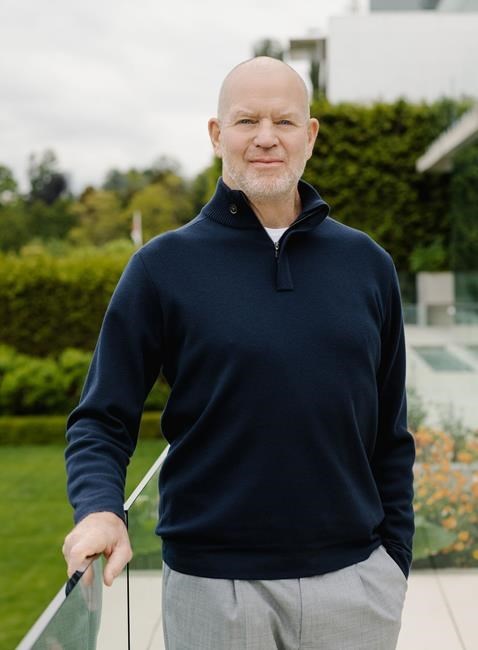VANCOUVER — Chip Wilson, the founder of athletic wear firm Lululemon Athletica, said he once considered himself invincible but is now cautious even about turning over in his sleep in case his shoulders dislocate because of a rare genetic disorder.
Wilson, 66, is starting a venture called "Solve FSHD" and contributing $100 million to help find a cure for the condition by the end of 2027.
He was diagnosed at 32 with facioscapulohumeral muscular dystrophy, which leads to weaknesses in the face, around the shoulder blades and upper arms.
"There's nothing holding my shoulders together and the pain is quite extraordinary," Wilson said in an interview Tuesday. "I get pinched nerves in the back. Ultimately, once a person gets into a wheelchair, a person is highly compromised … that would be a big concern."
Wilson said he didn't pay much attention to his diagnosis until he was travelling back from China on a business trip several years ago and fell in the airport.
He said he expects he will not be able to walk without help in eight years and 40 per cent of the muscles in his body have deteriorated or turned to fat, affecting his day-to-day life.
The investment will focus on both finding a cure for facioscapulohumeral muscular dystrophy type two and a way to build back muscles.
"I want to focus on muscle regeneration after this. From the longevity point of view, the biggest thing that could come out of this is regenerating muscles for older people. Most older people ... when they can't keep muscle, they fall, get injured and die," he said.
Wilson said he hopes the research could add 10 to 15 years to the lifespan of older people by curbing muscle degeneration.
Part of the problem, he said, is a lack of clinical trials being performed due to the absence of genetic markers to find the disease.
The funding will go toward programs or projects working to do more research in that area.
"It's not as daunting as you may think," he said, adding that his group will use the examples of how funding for research was directed for cystic fibrosis and spinal muscular atrophy.
The focus of "Solve FSHD" will be on investing in research and companies performing clinical trials, he said.
This report by The Canadian Press was first published March 8, 2022.
Nick Wells, The Canadian Press

